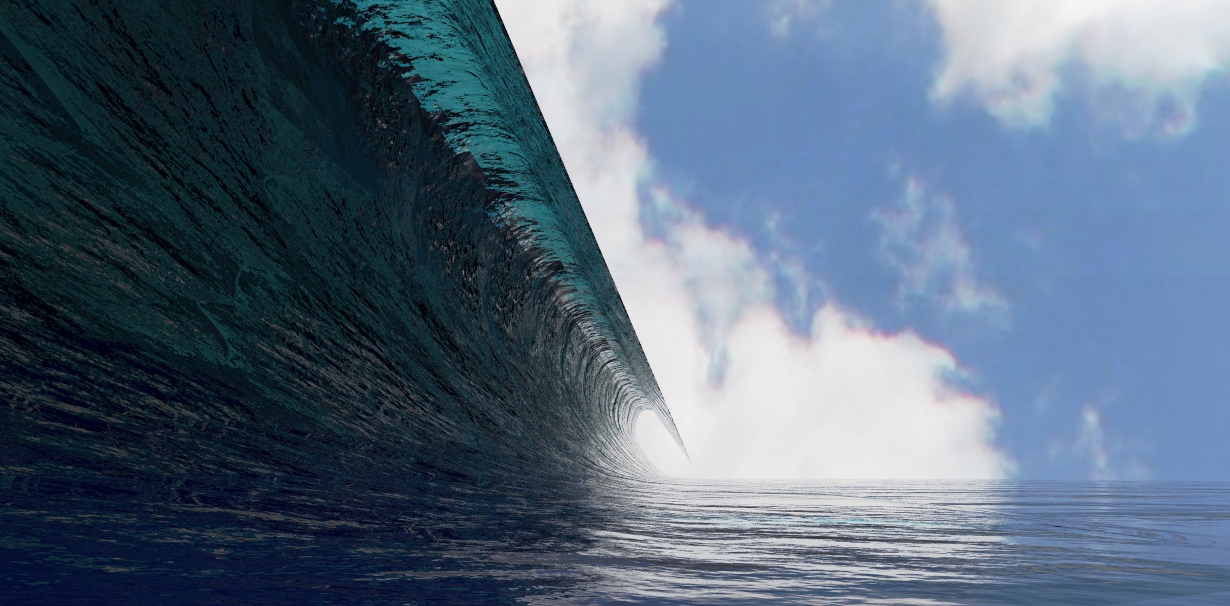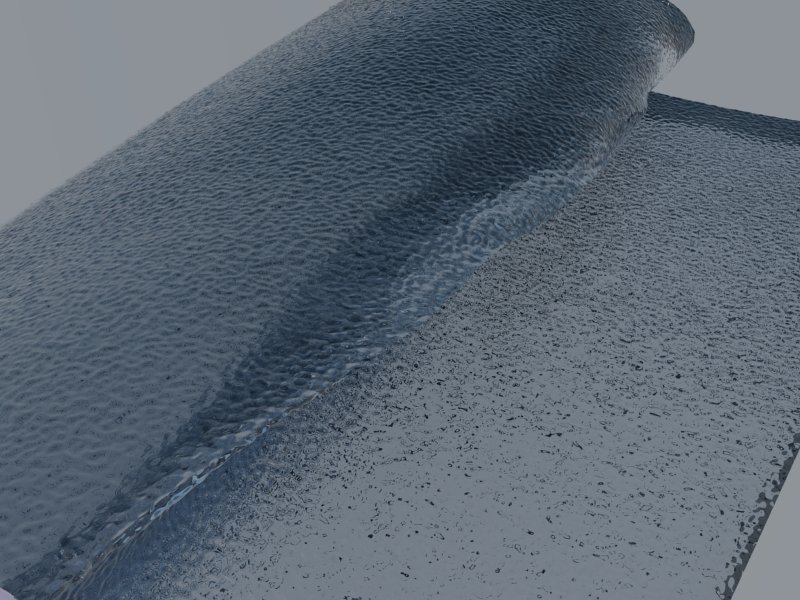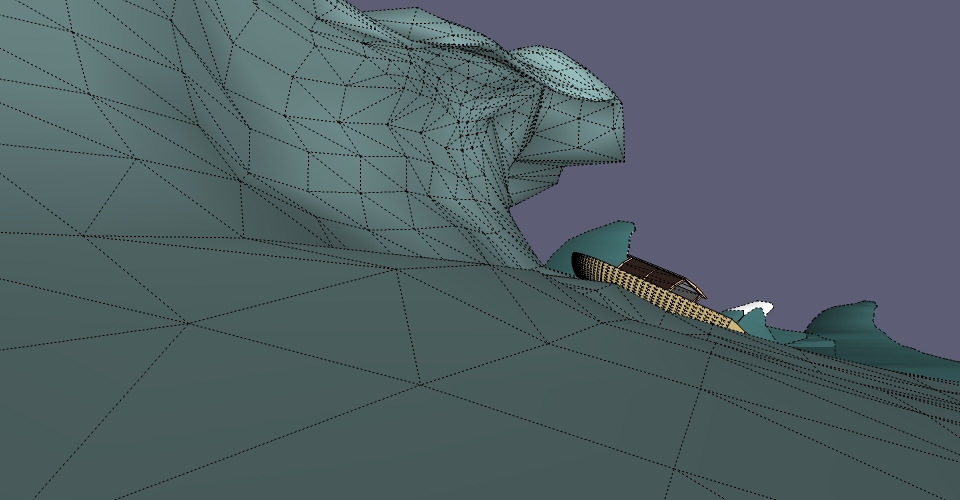Modeling ocean wave
-
same raw model with a different sky background
...once again, about 20 minutes rendered in Twilight
...i should add that the water material is is from one of Majid's collection

-
Lapx, did you ever finish the wave, how did it turn out?
--Roger
-
I gave it a try. The renderer is vray. Rendering time is > 30 mins (I quit checking after that). The basic shape is easy but I think it takes a lot of experimentation to get such a majestic wave as in the reference pic. I have no idea how to get natural looking froth and mist.

-
Here's what I've got. No render. I can post more if you are interested.

-
@oganocali said:
I gave it a try. The renderer is vray. Rendering time is > 30 mins (I quit checking after that). The basic shape is easy but I think it takes a lot of experimentation to get such a majestic wave as in the reference pic. I have no idea how to get natural looking froth and mist.
[attachment=0:3dol85fe]<!-- ia0 -->crest.jpg<!-- ia0 -->[/attachment:3dol85fe]Ogan, How may views would photoScan need to process a project like this. You could radio trigger 6 cameras with 1000sec shutter speed to produce 6 simultaneous views from different angles.
I know this would be expanding the frontiers of the technology, but this is exactly what I am interested in.
-
Water surface is too reflective for automatic surface generation in photoscan, but then again the small waves and froth might produce enough of a signal. For calibration and semi-automatic modeling this scene should be doable. 6 remote triggered cameras with 1/1000 shutter speed sounds exciting. you should be able to handle fast sports action with some accuracy. A sprinter (fastest) running around 10 meters a second would move around 1 cm in that 1 milliseconds. (that would also appear as a motion blur). If the synchronization of the cameras is better than 1 milliseconds you could get better accuracy by targeting (for drawing and calibration marking) the middle of the blurs. This is interesting because as of now there is no other 3D scanner of any sort that could obtain 3d models out of fast acting scenes.
(sorry for going off topic in a commercial sounding way)cheers
Ogan -
Ogan, if I dropped a garbage can of multicolored ping pong balls onto the surface it seems I would have many identifiable targets. Or perhaps dye packets.
I was observing a golf driving range the other day and it occurred to me that once the range was loaded with golf balls, it would be and easy surface to model. It also occurred to me that I could send a laser through a diffraction grating and instantly project registration marks onto a subject to be captured by simultaneous multiple cameras.
You calculation would only hold true at a 1:1 reproduction and only for motion entirely parallel to the film plane. My Pentax's top shutter speed is 1/4000. Radio signals move at light speed and electricity in a cable (any wiring distances would be extremely short) is about 2/3 the speed of light so camera synchronicity is negligible assuming the circuit is not designed with an intentional built in delay.
Lastly, accuracy, in LAPX's case, is less of a factor than simply capturing the essence of a typical wave shape.
-
@roger said:
Lapx, did you ever finish the wave, how did it turn out?
--Roger
I was wondering the same thing...!!
-
@Roger, you are right about remote camera synchronization but the timing of the mechanical movements sometimes have variability, and some cameras need to be primed first. Grass usually has enough signal.
-
So, sorry guy's. This project is one on the highly confidential list and I can't share much at this time:( It's taken on different direction at this time and instead of doing a literal wave they were exploring other curvy shapes.
I appreciate the efforts here which are not in vain and are helpful anycase.Thanks!
Advertisement







